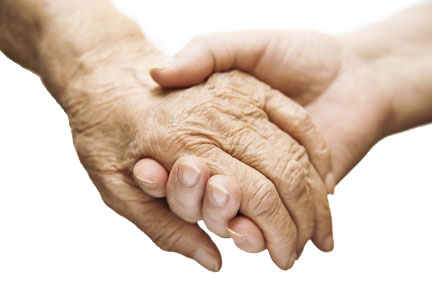|
First brain autopsy study in S. Asia by team from
University of Sri Jayawardenapura:
Lankan natural products mitigate dementia
By Carol Aloysius
Dementia in old age is a growing healthcare challenge worldwide. The
mental and behavioural changes happen so gradually in a sufferer, you’re
left to watch your loved one slowly deteriorate before your eyes and you
grieve every time they take a turn for the worse, until eventually they
can’t even remember their own names.
 One new case of dementia is diagnosed every 4 seconds around the
world. That tells you the sheer scope of this brutal disorder and how
many lives are being affected. Estimation of the number of people with
dementia is 46.8 million worldwide in 2015, 74.7 in 2030, 131.5 million
in 2050, the annual cost for dementia is US$ 818 billion in 2015
worldwide, it is estimated to be 1 trillion US$ by 2018 and 2 trillion
US$ by 2030, will be the 18th largest economy of the world exceeding
market values of APPLE and GOOGLE , prevalence of age-related dementia
is projected to increase at an even a faster rate in developing
countries, or low and/or middle-income countries (LMICs). One new case of dementia is diagnosed every 4 seconds around the
world. That tells you the sheer scope of this brutal disorder and how
many lives are being affected. Estimation of the number of people with
dementia is 46.8 million worldwide in 2015, 74.7 in 2030, 131.5 million
in 2050, the annual cost for dementia is US$ 818 billion in 2015
worldwide, it is estimated to be 1 trillion US$ by 2018 and 2 trillion
US$ by 2030, will be the 18th largest economy of the world exceeding
market values of APPLE and GOOGLE , prevalence of age-related dementia
is projected to increase at an even a faster rate in developing
countries, or low and/or middle-income countries (LMICs).
Sri Lanka is continuously experiencing fastest ageing in South Asia.
With no known curative measures for the devastating diseases Prof.
Ranil de Silva, the Director, Interdisciplinary Center for Innovation in
Biotechnology & Neuroscience, Faculty of Medical Sciences, University of
Sri Jayewardenepura with a team of local and international (India,
Netherlands, Australia, Korea) doctors investigated autopsy aging brain
samples from Sri Lanka and India, being the first direct comparative
study between Sri Lankan and India and the first ever brain autopsy
study undertaken in South Asia that was intended to explore the vascular
risk factors and cerebrovascular pathologies associated with Alzheimer
disease AD-related neuropathological changes, since identification of
such factors and pathologies may offer new insights into diagnosis
and/or early intervention.
The work was a result of the PhD thesis of Dr. Printha Wijesinghe
(PhD) under the supervision of Prof. Ranil de Silva, published in 2016
in prestigious international Journals: Journal of Alzheimer’s Disease,
is ranked 68th out of 256 journals in Neurosciences in Current Alzheimer
Research is ranked as the 34th of 192 in Clinical Neurology and 69th of
252 in Neurosciences
In an interview with the Sunday Observer he said, “Our findings
indicate that the burden of AD-related pathology in India and Sri Lanka
was similar to that of the West and highlighted the protective effects
of consumption of black tea and green-yellow vegetables in the dementia
pathology of aging. It further confirms the strong contribution of
hypertension and diabetes in AD-related changes, and urge prompt action
be taken against aforesaid risk factors possibly via therapeutic agents
that contains both anti-amyloidogenic and anti-atherosclerotic
properties as a preventative strategy for subsequent neurodegenerative
disease.”
Prof. De Silva is the Director. Interdisciplinary Center for
Innovation in Biotechnology & Neuroscience and Principal Invstigator
,Genetic Diagnostic & Researcyh Laboratory and Human Brain Tissue and
DNA Repository.
He can be contacted at the Dept. of Anatomy, Faculty of Medical
Sciences, University of Sri Jayawardenepura , Kotte.
|

